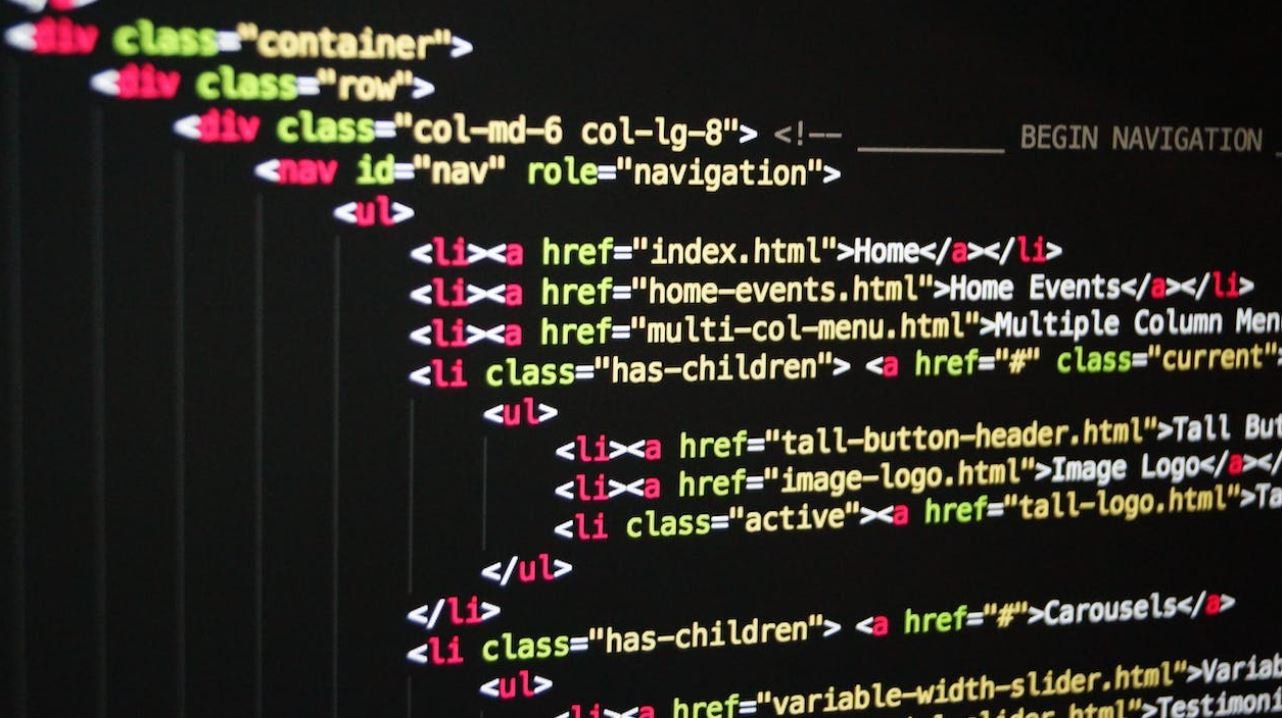AI Social Media Background Check
In today’s digital age, social media has become an integral part of our lives. People use it to share their thoughts, connect with friends, and even find job opportunities. However, social media can also reveal a lot about a person’s character and behavior. As a result, many employers and individuals are turning to AI-powered social media background checks to gather more information about individuals they are considering hiring or engaging with. This article explores the benefits and implications of using AI for social media background checks.
Key Takeaways:
- AI social media background checks can provide valuable insights into an individual’s online presence.
- These checks can help employers make informed hiring decisions.
- Individuals should be mindful of their online activities and their impact on their personal and professional reputation.
**AI social media background checks** leverage artificial intelligence algorithms to analyze an individual’s social media profiles, posts, and interactions. By using AI, these checks can quickly process and interpret vast amounts of data, providing employers with a comprehensive overview of a candidate’s online presence. *This technological innovation helps streamline the traditional background check process by automating the search for relevant information.*
**Privacy concerns** surrounding AI social media background checks have been a topic of discussion. Critics argue that these checks infringe upon individuals’ privacy rights, as their online activities may not be directly relevant to their professional capabilities. Additionally, there is the potential for false positives and misinterpretations of social media content, which can lead to biased decision-making. However, proponents argue that these checks help identify potential red flags and protect employers from hiring individuals who may engage in harmful behaviors or actions.
The Benefits of AI Social Media Checks
Using AI for social media background checks offers several advantages:
- **Efficiency**: AI algorithms can process large volumes of data quickly and accurately, saving employers significant time compared to manual checks.
- **Comprehensiveness**: AI can analyze various social media platforms, providing a holistic view of an individual’s online presence.
- **Relevant Insights**: These checks can reveal relevant information, such as discriminatory behavior, illegal activities, or discrepancies in a candidate’s qualifications.
- **Consistent Screening**: AI algorithms follow predetermined criteria, ensuring consistent screening processes and minimizing unconscious biases.
*AI social media background checks can revolutionize the way employers evaluate candidates, enhancing the hiring process and reducing the risk of making poor hiring decisions.*
Data Points – AI Social Media Checks
The following tables present interesting data points about AI social media background checks:
| Table 1: Prevalence of Social Media Checks |
|---|
| 82% of companies use social media to recruit candidates. |
| 45% of employers have found information on social media that led them to not hire a candidate. |
| 35% of employers have reconsidered a candidate based on positive social media content. |
| Table 2: Common Red Flags Identified by AI |
|---|
| Discriminatory language or behavior |
| Illustrating illegal activities |
| Inappropriate photos or content |
| Table 3: Benefits and Concerns of AI Social Media Checks | |
|---|---|
| Benefits | Concerns |
| Efficiency | Privacy concerns |
| Comprehensiveness | Potential for false positives |
| Relevant Insights | Misinterpretations of content |
| Consistent Screening | Unconscious biases |
The Future of AI Social Media Background Checks
As technology continues to advance, AI social media background checks will likely become even more sophisticated. Emerging trends, such as natural language processing and sentiment analysis, will enable AI algorithms to gain deeper insights into an individual’s online behavior and personality. Furthermore, greater emphasis will be placed on addressing privacy concerns and developing standardized guidelines for conducting fair and ethical AI social media background checks.
**In conclusion**, AI social media background checks have revolutionized the way employers evaluate candidates, providing valuable insights into an individual’s online presence. However, it is crucial to strike a balance between privacy considerations and the need for comprehensive screening. As technology and regulations evolve, AI social media checks will continue to play a vital role in the decision-making processes associated with employment and personal engagements.

Common Misconceptions
Misconception 1: AI social media background checks are always accurate
One common misconception about AI social media background checks is that they are always accurate and provide the complete picture of an individual. However, this is not necessarily true as there are certain limitations to AI algorithms and the data they analyze.
- AI algorithms can miss context and interpret certain posts or images inaccurately
- Incomplete or outdated data can lead to incorrect conclusions
- AI social media background checks may not be able to detect sarcasm or irony in posts, leading to misinterpretations
Misconception 2: AI social media background checks invade privacy
Another common misconception is that AI social media background checks invade individuals’ privacy by digging through their personal data. While it is true that these checks involve analyzing publicly available information, they typically do not access private or protected content.
- AI social media background checks focus on information that individuals have voluntarily shared publicly
- Private and protected content is usually inaccessible and not used during the analysis
- Strict regulations and data protection laws ensure that personal privacy is not compromised
Misconception 3: AI social media background checks are used for discrimination
Some people believe that AI social media background checks are used by employers or individuals to discriminate against certain groups based on their social media activity. However, this is a misconception as legitimate background checks focus on professional qualifications and suitability for a specific role.
- AI algorithms are designed to identify relevant information, such as skills and experience, rather than personal traits
- Discrimination based on race, gender, or other protected characteristics is prohibited by laws and regulations
- AI social media background checks aim to provide objective and fair assessments of candidates
Misconception 4: AI social media background checks are infallible
Another misconception is that AI social media background checks are infallible and without errors. However, like any technology, AI algorithms are not perfect and can make mistakes or produce false positives and false negatives.
- AI algorithms can miss important information or fail to detect certain patterns
- False positives can occur when innocent posts are misinterpreted as negative or suspicious
- Human verification and review are essential to ensure accuracy and reduce errors
Misconception 5: AI social media background checks are secret and cannot be challenged
Some individuals assume that AI social media background checks are secretive processes that cannot be questioned or challenged. However, transparency and accountability are crucial aspects of AI algorithms used for background checks.
- Individuals have the right to know what data was analyzed and how it was interpreted
- Mistakes or inaccuracies can be challenged and corrected through an appropriate appeals process
- Companies using AI social media background checks are often required to provide disclosure and communication to the individuals involved

Introduction
AI Social Media Background Check is becoming increasingly popular in today’s digital age. With the abundance of personal information available on social media platforms, companies and organizations are leveraging artificial intelligence technology to screen candidates and gain insights into their online activities. This article explores various aspects of AI social media background checks through a series of interactive and informative tables.
Table 1: Social Media Penetration Worldwide
The following table provides an overview of social media penetration rates across different regions of the world, indicating the sheer reach and potential impact of these platforms.
| Region | Social Media Penetration (%) |
|—————-|—————————–|
| North America | 82 |
| South America | 70 |
| Europe | 67 |
| Africa | 30 |
| Asia Pacific | 53 |
Table 2: Most Popular Social Media Platforms
Here, you can find the top five most popular social media platforms, showcasing the dominant players in the market and their user bases.
| Social Media Platform | Number of Users (in billions) |
|———————–|——————————|
| Facebook | 2.85 |
| YouTube | 2.29 |
| WhatsApp | 2.0 |
| Instagram | 1.16 |
| WeChat | 1.15 |
Table 3: Users’ Age Distribution on Social Media
This table delves into age distribution across social media platforms, providing insights into where different demographics are most active.
| Age Group | Facebook | YouTube | WhatsApp | Instagram | WeChat |
|—————–|———-|———|———-|———–|——–|
| 13-17 | 7% | 11% | 5% | 10% | 12% |
| 18-24 | 23% | 23% | 21% | 32% | 31% |
| 25-34 | 24% | 26% | 24% | 21% | 22% |
| 35-44 | 19% | 18% | 22% | 18% | 20% |
| 45-54 | 16% | 16% | 21% | 12% | 10% |
| 55-64 | 8% | 6% | 11% | 5% | 3% |
| 65+ | 3% | 1% | 5% | 2% | 2% |
| Unknown/Unlisted | 0% | 0% | 0% | 0% | 0% |
Table 4: Potential Risks of AI Social Media Background Checks
In this table, we highlight some of the potential risks associated with AI social media background checks, helping organizations to navigate through the complexities of this screening process.
| Risk | Description |
|—————————————-|————————————————————————————————————————————–|
| Privacy Concerns | AI background checks may infringe on individuals’ privacy rights if sensitive personal information is accessed without proper consent. |
| Inaccurate Assessments | Algorithms used in AI screening may generate false positives or negatives, leading to unjust rejections or hiring decisions. |
| Bias and Discrimination | If AI models are not properly trained and tested, they can perpetuate biases present in social data, resulting in discriminatory judgements. |
| Legal Compliance Issues | Organizations need to ensure that their AI social media background check processes comply with relevant laws and regulations. |
| Potentially Missing Out on Good Talent | Overreliance on AI screening may lead to the exclusion of candidates who may be a good fit but do not conform to social media expectations. |
| Limited Contextual Understanding | AI might have difficulties interpreting sarcasm, irony, or nuanced statements, potentially misinterpreting an individual’s online presence. |
Table 5: Use Cases of AI Social Media Background Checks
This table presents various use cases where AI social media background checks play a significant role, demonstrating their versatility beyond traditional hiring practices.
| Use Case | Description |
|——————————-|———————————————————————————————————————|
| Employee Screening | Companies use AI to analyze job applicants’ online presence to identify potential red flags or inappropriateness. |
| Brand Reputation Management | Businesses monitor social media to proactively protect their brand image, identify issues, and manage customer feedback. |
| Influencer Selection | Brands leverage AI to assess influencers’ social media activities and followers to ensure they align with the brand values. |
| Risk Assessment | Law enforcement agencies analyze social media postings to detect potential threats, aiding in crime prevention. |
| Ad Targeting | AI-based social media analysis helps tailor advertisements to a specific audience, increasing marketing effectiveness. |
Table 6: AI Social Media Screening Platforms
The table below highlights some of the prominent AI-powered platforms providing solutions for social media background checks.
| Platform | Description |
|————-|——————————————————————————————————-|
| Fama | Offers an AI-based solution to conduct social media screenings with an emphasis on mitigating biases. |
| HireVue | Provides AI video interviews and assessments, allowing companies to evaluate candidates’ soft skills. |
| BrandTotal | Helps brands identify influencers and monitor brand sentiment on social media platforms. |
| Social Intelligence Corp | Performs comprehensive background checks by analyzing social media and online presence. |
| X1 Social Discovery | Enables organizations to search, collect, and analyze social media and web data for investigations. |
Table 7: Countries with Privacy Laws for AI Screening
This table outlines some countries that have established privacy laws specifically addressing AI social media background checks, adding a layer of protection for individuals.
| Country | Privacy Law |
|—————-|—————————————————————————————————————–|
| United States | Fair Credit Reporting Act (FCRA) – Requires employers to provide disclosure and obtain consent for screenings. |
| European Union | General Data Protection Regulation (GDPR) – Regulates the processing and protection of personal data. |
| Canada | Personal Information Protection and Electronic Documents Act (PIPEDA) – Sets guidelines for data protection. |
| Australia | Privacy Act 1988 – Covers personal information handling practices, including social media background checks. |
| France | French Data Protection Act (CNIL) – Regulates the processing and protection of personal data in France. |
Table 8: Investments in AI Social Media Screening
This table showcases recent investments and funding rounds secured by companies specializing in AI-based social media background checks.
| Company | Recent Investments (in millions of dollars) |
|————|——————————————–|
| Fama | 2.4 |
| BrandTotal | 10 |
| HireVue | 85 |
| Social Intelligence Corp | 6.1 |
Table 9: Industries Utilizing AI Social Media Screening
Here, we explore various industry sectors that heavily rely on AI social media background checks for their respective purposes.
| Industry | Purpose |
|———————|———————————————————————————————|
| Human Resources | To screen job applicants and mitigate hiring risks. |
| Marketing | To understand consumer behavior, tailor campaigns, and influencer selection. |
| Financial Services | For enhanced risk assessment, fraud detection, and compliance monitoring. |
| Education | To assess potential students, faculty, or staff members and maintain campus safety. |
| Legal | To collect evidence, monitor court conditions, and uncover relevant case information. |
Conclusion
The proliferation of social media platforms and advancements in artificial intelligence have driven the adoption of AI social media background checks. With insights garnered from user data, companies can make informed decisions about candidates, protect brand reputation, and enhance security measures. However, it is crucial to address the potential risks associated with privacy, inaccuracies, and biases. By understanding the use cases, current market players, and legal frameworks, organizations can navigate this emerging field responsibly to leverage its benefits while mitigating its challenges.
Frequently Asked Questions
AI Social Media Background Check
What is an AI social media background check?
The AI social media background check is a process that utilizes artificial intelligence algorithms to analyze an individual’s online presence, specifically on social media platforms, in order to assess their suitability for certain purposes such as employment, insurance, or other evaluations.
How does an AI social media background check work?
An AI social media background check works by scanning and analyzing publicly available information on various social media platforms. The AI algorithms analyze the content, including text, images, videos, and other media, to identify patterns, sentiments, and potential red flags that may be relevant to the evaluation.
What information is considered in an AI social media background check?
An AI social media background check considers various aspects of an individual’s online presence, including their posts, comments, likes, shares, connections, and followers on social media platforms. It may also look for specific keywords, hashtags, or other indicators related to the purpose of the evaluation.
How accurate are AI social media background checks?
The accuracy of AI social media background checks can vary depending on the quality of the algorithms and the data they analyze. However, AI algorithms are designed to analyze vast amounts of data quickly and identify patterns that humans may miss, making them highly efficient in detecting relevant information.
Are AI social media background checks legal?
AI social media background checks must comply with applicable privacy and data protection laws. Depending on the jurisdiction, individuals may have the right to consent or be informed about such evaluations. It is important for organizations to ensure that their AI social media background checks adhere to legal requirements.
Can AI social media background checks be used for employment screening?
AI social media background checks can be used as a part of the employment screening process, but organizations must follow relevant laws and guidelines. Depending on the region, there may be restrictions on using certain types of information obtained through social media platforms for employment decisions.
What are the potential benefits of AI social media background checks?
AI social media background checks can provide organizations with additional insights into a candidate’s character, behavior, and online presence. This information can be valuable in making informed decisions about employment, insurance policies, or other evaluations where an individual’s online activities may be relevant.
What are the potential risks of AI social media background checks?
There are potential risks associated with AI social media background checks. For example, there is a risk of bias or misinterpretation of information if the algorithms are not well-designed or trained properly. There is also a risk of invading an individual’s privacy or using irrelevant or unverified information in the evaluation process.
Can AI social media background checks be fooled or manipulated?
AI social media background checks can be fooled or manipulated to some extent by individuals who are aware of the evaluation. They may manipulate their social media profiles, restrict access to certain information, or use fake accounts to mislead the algorithms. However, advanced algorithms are constantly evolving to mitigate such attempts.
Can AI social media background checks be contested or disputed?
Individuals who undergo AI social media background checks may have the right to contest or dispute the findings if they believe there are errors or unfair judgments. Organizations conducting such evaluations should have appropriate procedures in place to handle disputes and ensure a fair and transparent process.




